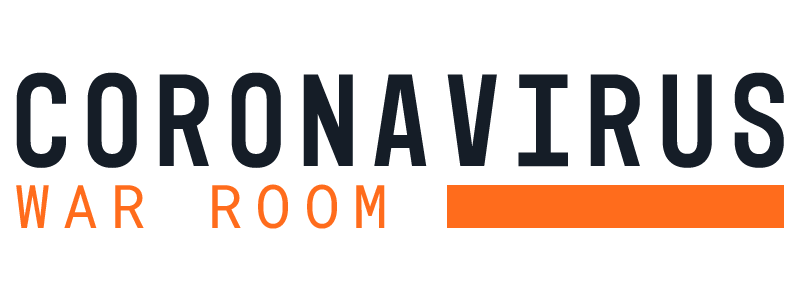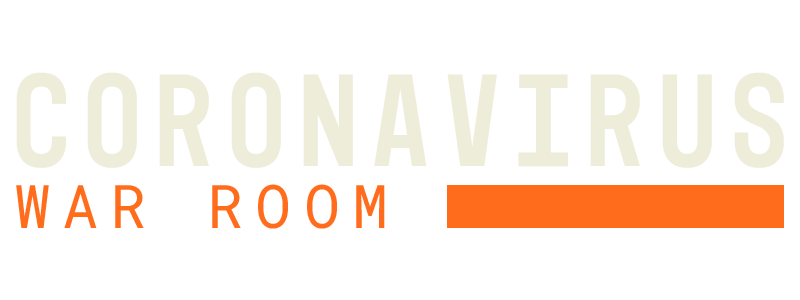As Trump and some Republican governors push for states to reopen their economies, public health experts overwhelmingly agree they must drastically ramp up testing to achieve that goal.
However , Trump has ignored the advice of medical experts and the pleas from governors for more critical testing supplies their states need to test Americans, and has even pitted states against each other.
Governors Have Been Sounding the Alarm on Shortages of the Basic Testing Supplies They Need
Gov. Larry Hogan (R-MD): “This is probably the number one problem in America, and has been from the beginning of this crisis, the lack of testing.” [USA Today, 4/21/20]
Governor Kristi Noem (R-ND): “South Dakota officials say while they’ve increased their testing capacity in the state for COVID-19, they are lacking supplies to perform the tests. Governor Kristi Noem said she spoke with Vice President Mike Pence for two hours Monday, April 20 about the situation in the state. She said while they have received machines from the federal government– like Abbot ID machines, which can offer COVID-19 test results in just a few minutes– the state doesn’t have enough supplies to use them.” [KTIV, 4/20/20]
Governor Laura Kelly (D-KS): “Gov. Laura Kelly and other state officials say they have complained mightily about the shortage of test kits and chemicals, and insist they’re trying to ramp up testing this week. ‘Our ability to test and contact trace must be much more robust before we can safely proceed to open,’ the governor said last week.” [Kansas City Star, 4/23/20]
Governor JB Pritzker (D-IL): “The truth of the matter is that the President doesn’t seem to understand the difference between testing capacity and getting testing results. Testing capacity, what he’s referring to is, hey, you’ve got enough machines in each of your states to run tests that will give you, you know, hundreds of thousands of results. Well, he may be right, and he is right in Illinois. But what he’s not right about is we don’t have the supplies to run those tests. So, you’ve got the capacity, because you’ve got the machines. But remember, you need everything from swabs to, you know, VTM, viral transport medium, to RNA extractor, you know, reagent. And if you don’t have all those—and by the way, there’s a worldwide shortage of all of those things–then you can’t run a test.” [Washington Post, “Washington Post Live,” 4/21/20]
Governor Gretchen Whitmer (D-MI): “We’ve got to ramp up testing… [Michigan needs] swabs and reagents. It’s really that simple. And it’s these tools that go into the test that we’re all competing for, that we’re all trying to get. My hope is–I know that there was a comment by the White House that they would be moving forward and using the Defense Production Act to start producing swabs. I haven’t seen if that’s really going to become a reality or not. But I do know that that is one piece of the test that we don’t have enough of. We could maybe do two or even three times more testing than we are right now, but the fact of the matter is that we need those swabs and we need reagents so that we can process those tests.” [Washington Post, “Washington Post Live,” 4/21/20]
Governor Roy Cooper (D-NC): “North Carolina Gov. Roy Cooper has said that the state lacks the necessary COVID-19 testing kit supplies, and that more testing — along with contact tracing and trends in cases, hospitalizations and deaths — are the three factors in lifting restrictions.” [Raleigh News & Observer, 4/20/20]
Governor Steve Bullock (D-MT): “Just days ago, I joined Republican and Democrat governors in voicing concerns to the president about the shortage of testing supplies, which impacts our ability to test on the ground. I’m pleased that those concerns were listened to and that we received this shipment, but it doesn’t get us far enough,” Bullock said. “I will continue to push for further federal support in order to ensure we have the adequate testing capacity as we reopen in a way that will protect Montanans’ lives and the recovery of our economy.” [NBC Montana, 4/20/20]
Governor Phil Murphy (D-NJ): While Murphy has largely refrained from criticizing Trump or Pence, and has gone out of his way to compliment the administration’s responsiveness to New Jersey’s requests for supplies, “with the greatest respect, we don’t see it that way as it relates to testing,” he said Monday. ‘There is not, as far as we can tell, plenty to go around,’ Murphy said. ‘We’ve turned over every stone here.’” [Politico, 4/20/20]
Governor Ralph Northam (D-VA): “‘Testing isn’t just about the test itself,’ Northam said. ‘Labs might be able to run tests, but until doctors have enough swabs to do the tests, and we have enough supplies to safely transport the tests, we cannot meet the need for testing.’” [Virginia Pilot, 4/20/20]
Governor Andrew Cuomo (D-NY): “‘The more testing, the more open the economy. But there’s not enough national capacity to do this,’ Mr. Cuomo, a Democrat, said at his daily briefing in Albany. ‘We can’t do it yet. That is the unvarnished truth.’” [New York Times, 4/15/20]
And Public Health Experts Across the Board Stress the Need to Increase Testing Capacity in Order to Reopen the Country
More Than 45 Economists, Social Scientists, Lawyers, And Ethicists: “Test producers will need to deliver 5 million tests per day by early June to safely open parts of the economy by late July, according to the report. To ‘fully re-mobilize the economy,’ the country will need to see testing grow to 20 million a day, the report suggests. ‘We acknowledge that even this number may not be high enough,’ according to the report.” [ABC News, 4/20/20]
Director Of The National Institute Of Allergy And Infectious Diseases Dr. Anthony Fauci: “We need to significantly ramp up not only the number of tests, but the capacity to perform them, so that you don’t have a situation where you have a test but it can’t be done because there isn’t a swab, or because there isn’t extraction media, or not the right vial. I am not overly confident right now at all that we have what it takes to do that. We are doing better, and I think we are going to get there, but we are not there yet.” [Time, 4/23/20]
University Of Florida Biostatistics Professor Natalie Dean: “The whole point of this social distancing is to buy us time to build up capacity to do the types of public health interventions we know work. If we’re not using this time to scale up testing to the level that we need it to be … we don’t have an exit strategy. And then when we lift things, we’re no better equipped than we were before.” [Vox, 4/17/20]
Dr. Ashish Jha, Director Of Harvard Global Health Institute: “The single most important tool we’ll need is an extensive testing infrastructure.” [Forbes, Dr. Ashish Jha, 4/8/20]
- Director Of Harvard Global Health Institute Dr. Ashish Jha: “Testing on this scale—about 500,000 people daily—is well within our capacity.” [Forbes, Dr. Ashish Jha, 4/8/20]
FDA Commissioner Stephen Hahn: “Further ramping up testing, both diagnostic as well as the antibody tests, will really be necessary as we move beyond May into the summer months and then into the fall…We need to do more. No question about that.’” [Politico, 4/12/20]
CDC Director Robert Redfield: “‘We are going to need a substantial expansion of public health fieldworkers… This, along with ample testing, is what will be needed ‘to make sure that when we open up, we open up for good.’” [NPR, 4/10/20]
Director Of The National Institute Of Allergy And Infectious Diseases Dr. Anthony Fauci: “When we turn the corner and it goes down, we have to have in place the ability to do the kind of containment that’s pristine — namely, you test like crazy, you identify people, you isolate them and you do contact tracing.’” [The Hill, 4/3/20]
Former FDA Commissioners Mark McClellan And Scott Gottlieb: “At the same time that we confront the current crisis, we must plan for the future by putting in place tools to enhance our ability to conduct effective surveillance, containment, and case management… There is no time to lose.” [Duke Margolis Center for Health Policy, McClellan et al., 4/7/20]
Former FDA Commissioner Scott Gottieb And Former Deputy Director Of FDA’s Medical Device Center Lauren Silvis: “Until there is a vaccine, preventing Covid-19 outbreaks will depend mostly on testing, isolation and tracing the contacts of people who test positive.” [Wall Street Journal, Scott Gottlieb and Lauren Silvis, 4/12/20]
Director Of Yale School Of Public Health’s Health-Care Management Program Howard Forman: “Even accounting for the lack of reporting by many states (which is, of itself, unacceptable), we are at a seemingly semi-permanent plateau that is 1/6 or less from where we should be EVERY day. If you want to open the country up, START testing.” [Twitter, Howard Forman, 4/12/20]
Director Of Yale School Of Public Health’s Health-Care Management Program Howard Forman: “Italy is testing at MORE than twice our rate, per capita. We should have been performing more than 1 million persons per day, weeks ago!” [Twitter, Howard Forman, 4/11/20]
Harvard Epidemiologist Marc Lipsitch: “Testing is still too behind to know for sure when restrictions should be lifted in the United States, Harvard epidemiologist Marc Lipsitch told the USA TODAY Editorial Board on Wednesday.” [USA Today, 4/8/20]
Amesh Adalja, Senior Scholar, Johns Hopkins Center For Health Security: “It’s not a question of whether there’s going to be more cases after you lift social distancing. They are going to occur. We just want them to occur at a rate that is manageable. And the only way that’s going to happen is with testing.” [Vox, 4/10/20]
Tom Inglesby, Director Of The Center For Health Security At Johns Hopkins University: We Need “Extensive Diagnostic Testing Capability” To Lift Restrictions On Society. Asked what needed to be done before social distancing measures could be lifted, Inglesby answered: “Extensive diagnostic testing capability. Right now we’re focused on the sickest patients—as we should be—in hospitals and long-term care facilities and health care workers. But we need to get to a point where anybody who’s got symptoms consistent with COVID-19 can get a test and have results in the same day.” [Scientific American, 4/6/20]
University Of California San Francisco Epidemiologist Jeffrey Martin: “If there’s enough testing around and people are willing to be tested, the brushfires can be identified and put out before the wildfire… The only way that a society can function is if the brushfires are identified and put out.” [Vox, 4/13/20]
But the Trump Administration Didn’t Prioritize Testing, and Broke Promises They Made
The Trump administration promised there would be 27 million tests available by March 28. To date, they have completed only around 4 million.
By the seventh week of coronavirus spread in the U.S., Trump HHS Secretary Alex Azar promised 4 million tests — but delivered only 25,200.
On March 6th, Trump falsely claimed that, “anybody that needs a test gets a test.”
Also on March 6th, Trump claimed that “millions” of tests were being made — although those tests have not yet materialized. For the past month, testing has stalled with only about 120,000 – 150,000 tests being conducted daily.
The Washington Post reported that Trump promised scores of big-box retailers would offer parking lots for COVID-19 testing — but by late March, only five of them existed.
And by mid-April, there were fewer than 20 testing locations out of thousands of stores nationwide.
And Instead of Helping, the White House Has Pit States Against Each Other for These Supplies, Creating a Shortage and Driving Up the Costs
Politico: The White House has directed states to compete against each other on the global market for testing supplies, including swabs and chemicals needed to prepare patient samples for analysis — creating a bottleneck that has hindered testing capacity across the country.


